Easton Slip and Fall Lawyer
Home » Practice Areas » Personal Injury Lawyer Easton, PA » Easton Slip and Fall Lawyer
Practice Areas
Easton slip and fall lawyer, Edward P. Shaughnessy, has extensive experience with premises liability cases in the Lehigh Valley area. As a seasoned personal injury lawyer, he’s helped hundreds of injury victims recover fair compensation through comprehensive legal support in premises liability claims.
If you’ve been involved in a slip and fall accident or were injured on someone else’s property in Easton, our Easton slip and fall lawyers can potentially help you pursue compensation under Pennsylvania law.
The Law Offices of Edward P. Shaughnessy is here to guide and support accident victims who have suffered serious injuries due to property owner negligence in Easton. Call our Easton slip and fall attorneys at 610-258-9955 for your free initial consultation today. Our personal injury lawyers operate on a contingency fee basis, so you won’t pay any legal fees unless your personal injury case is successful.
What is Premises Liability?
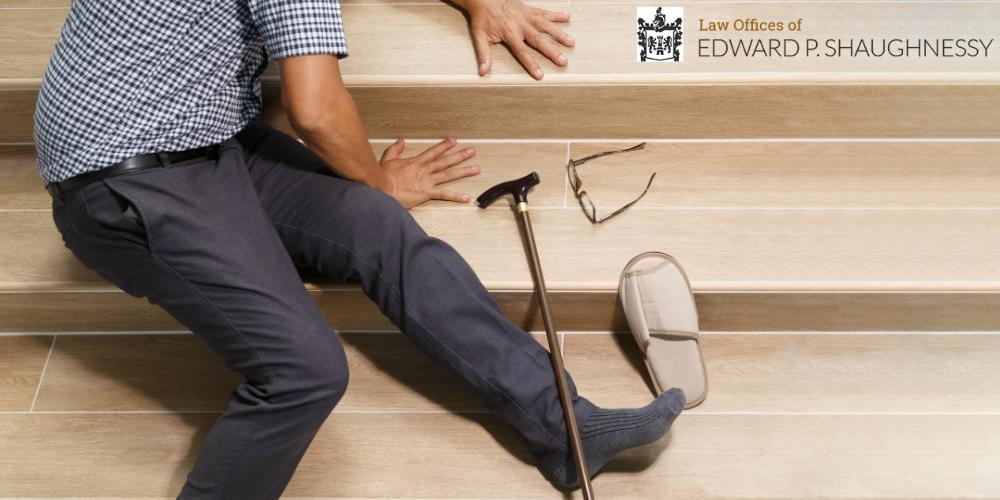
Premises liability holds a property owner liable injuries sustained on their premises due to unsafe or hazardous conditions. This area of personal injury law ensures that property owners maintain a reasonable standard of care to protect visitors from harm while on their property. When a property owner fails to meet this duty of care, they can be held liable for any serious injuries that result through a premises liability claim.
Premises Liability Violations in Personal Injury Claims
Premises liability violations encompass a wide range of hazardous conditions that can lead to accidents and injuries on someone else’s property. Common types of premises liability violations include:
Slip and fall accidents are the most common type of premises liability violation. Slip and fall accidents often result from slippery or wet floors, uneven surfaces, loose cables and debris, and other hazards.
Dog bites can occur when owners fail to properly restrain or control their pets. Personal injury cases involving severe injuries caused by animal attacks necessitate an Easton personal injury lawyer with experience in these types of claims. Contact our Easton dog bite lawyer to learn more.
Negligent security means that inadequate security measures led to criminal activities causing harm to visitors. The building owner or negligent parties involved can be held liable for injuries sustained on the property.
Swimming pool accidents and drownings may happen due to the lack of proper safety measures or supervision around pools.
If you have suffered serious injuries from any of these premises liability violations, the Easton personal injury lawyers at the Law Offices of Edward P. Shaughnessy will go over your personal injury case to see if you have a valid claim.
Common Causes of Slip and Fall Accidents in Easton, PA
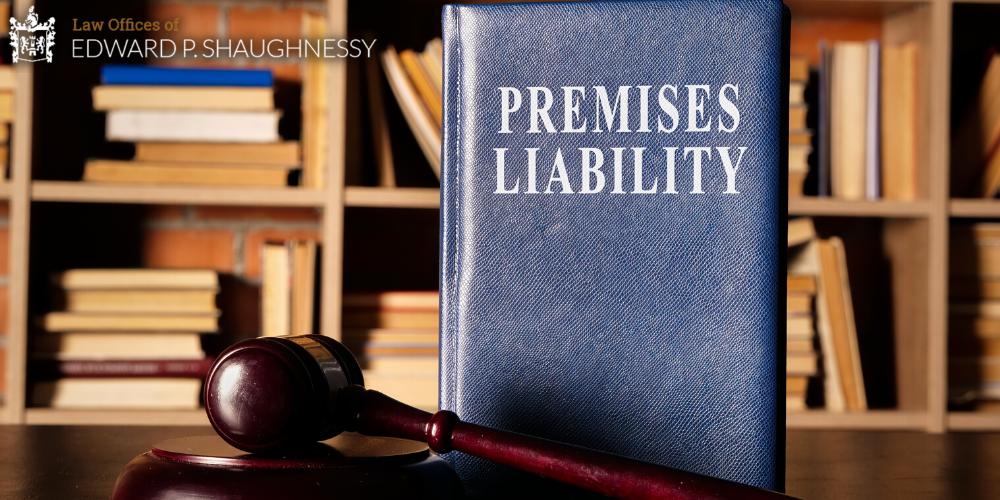
Our Easton personal injury lawyers note some of the most common causes of slip and fall accidents:
- Weather Conditions: Property owners should do what they can to warn visitors of these dangerous conditions so that they can stay safe. If a dangerous condition existed before during adverse weather, it’s safe to assume the premises will be dangerous during the next storm or weather event.
- Commercial Establishments: Grocery stores, restaurants, and retail shops in Easton may occasionally neglect their duty to maintain safe premises, resulting in wet floors, uneven surfaces, or even loose cables and debris on the floor.
- Residential Properties: Lack of adequate lighting in these properties can also cause people to slip, trip, and fall, resulting in personal injury cases.
- Public Spaces: Easton’s public areas and parks can also pose risks, particularly when maintenance and repair are neglected.
What Are Common Slip and Fall Injuries?
When a slip-and-fall accident occurs, it can lead to a wide range of injuries, some of which may have long-lasting consequences. Common injuries include:
- Fractures and Broken Bones: Falling on a hard surface can result in fractures or broken bones, most commonly in the wrists, arms, hips, or legs. An Easton broken bone lawyer can help victims recover fair compensation.
- Traumatic Brain Injury (TBIs): A brain injury can occur when someone’s head strikes the ground during a fall, potentially leading to concussions or more severe TBIs. If you have suffered a TBI due to a negligent property owner, be sure to consult with an Easton traumatic brain injury attorney.
- Sprains and Strains: Twisting or overextending joints or muscles can result in sprains or strains.
- Neck Injuries and Spinal Cord Injuries: Falls can damage the spine or cause herniated discs, leading to serious injury or paralysis in severe cases. An Easton spinal cord injury lawyer can help pursue compensation.
- Soft Tissue Injuries: Bruises, cuts, and other soft tissue injuries are common in slip and fall accidents.
These serious injuries can result in significant medical expenses, pain and suffering, and lost wages, making it crucial to seek compensation if negligence was involved in slip and fall accidents. An Easton slip and fall lawyer at the Law Offices of Edward P. Shaughnessy can help you hold the negligent property owner liable in a personal injury lawsuit.
Possible Liable Parties for Slip and Fall Accident Claims in Pennsylvania
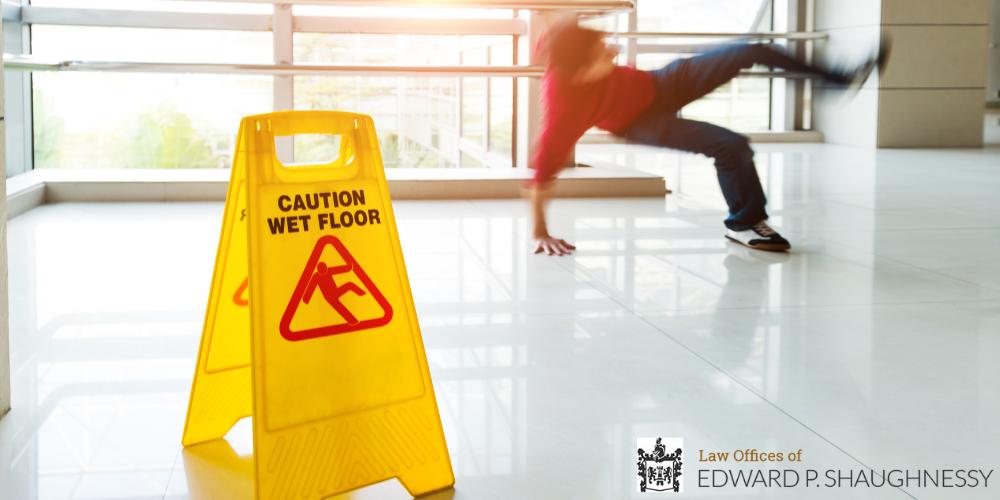
Determining who is responsible for a slip and fall in Easton, PA, depends on various factors, including the location and cause of the accident. Possible liable parties may include:
- Property Manager or Owner: Property owners are often the primary responsible parties when it comes to maintaining safe premises and preventing accidents.
- Business Owners: If the slip and fall occurred on a commercial property, the business owner may share liability with the property owner.
- Government Entities: In cases involving accidents on public property, such as sidewalks or parks, local government entities may be liable for failing to maintain safe conditions. Filing a slip and fall claim against a government entity may be complicated or unfeasible, so it’s always important to consult with an Easton slip and fall lawyer first.
- Contractors or Maintenance Companies: If a third-party contractor or maintenance company was responsible for creating or exacerbating the hazard, they may be held liable.
Identifying the responsible party is the first step in pursuing a slip and fall claim. An Easton slip and fall attorney can carefully examine the details of your claim and help you determine who exactly is at fault for your injuries.
What to do After a Slip and Fall Accident in Easton, PA?
After a slip and fall accident on someone else’s property, you’ll need to file an accident report on location if possible. Next, you need to get medical help as soon as possible. After you aren’t in immediate danger, contact an experienced Easton slip and fall lawyer.
Should I Speak With an Insurance Adjuster After a Slip and Fall Accident?
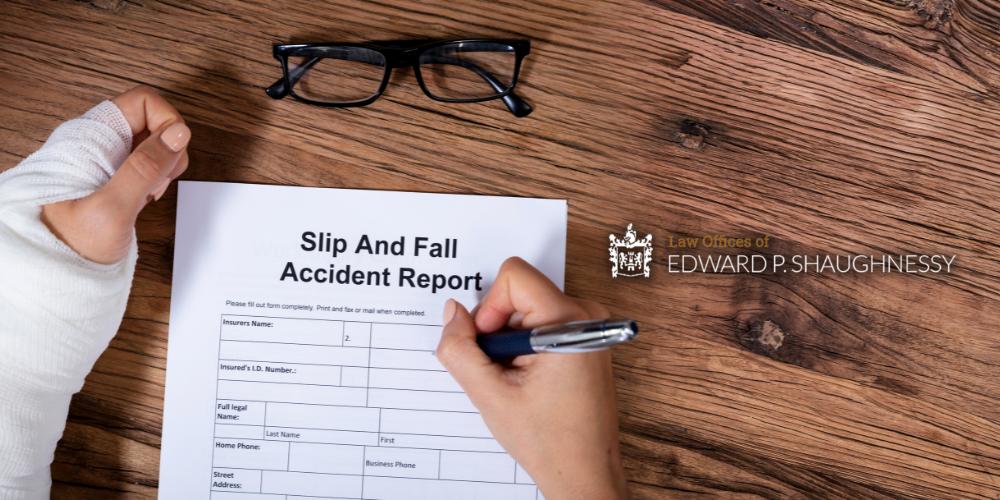
After a slip and fall incident, you may be contacted by the property owner’s insurance company or their adjuster. As seasoned Easton personal injury lawyers, we urge you to contact a slip-and-fall accident attorney before speaking to any adjusters.
Proving Negligence in Easton Slip and Fall Accident Lawsuits
To succeed in a slip and fall accident lawsuit, your personal injury lawyer must establish that the negligence of the property owner negligence caused your serious injuries. To prove negligence in personal injury cases, personal injury lawyers must show the following:
Duty of Care: In a premises liability claim, a personal injury lawyer must prove that the property owner owed you a duty of care to maintain safe premises. This is the
Breach of Duty: The personal injury lawyer must prove that the property owner failed to maintain safe premises. This is essentially breaching their duty of care because the property owner knew of the dangerous conditions and allowed them to exist anyway.
Causation: The personal injury lawyer must prove that the hazardous condition directly caused your injuries.
Damages: Personal injury lawyers must calculate the damages injury victims incurred as a result of the accident, such as medical bills, lost wages, and pain and suffering.
Your Easton slip and fall attorney will gather evidence to establish liability and build a compelling slip and fall case against the responsible party.
What is the Open and Obvious Defense in Slip and Fall Cases?
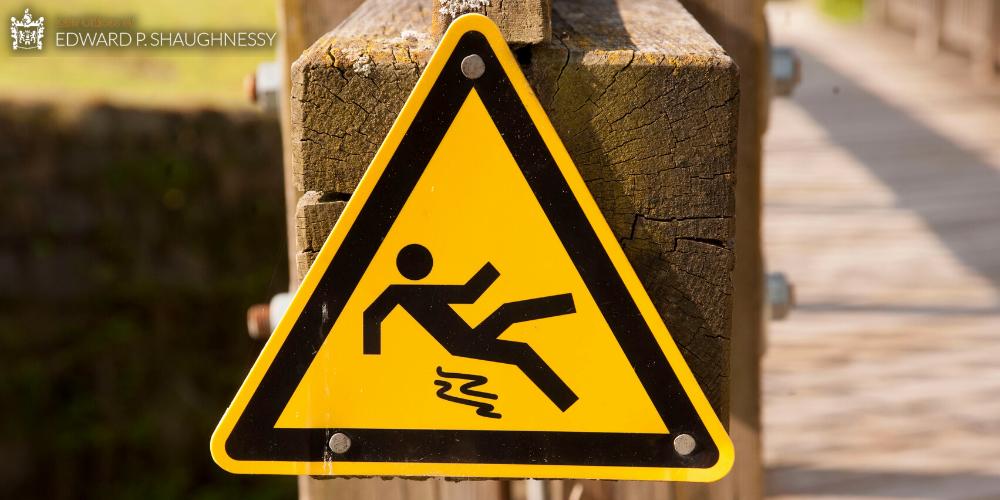
The “open and obvious” defense is a legal argument commonly used in personal injury cases. This defense argues that the dangerous condition that led to the slip and fall accident was so apparent and readily visible that a reasonable person should have noticed it and taken precautions to avoid it. It argues that the injured party should have exercised their own duty of care by recognizing and avoiding the hazard.
While the open and obvious defense can present challenges for plaintiffs in slip and fall cases, it is not an absolute immunity for other parties acting negligently. Under Pennsylvania’s comparative negligence law, when falls occur, as long as the victim wasn’t over 51% responsible or their injuries, slip and fall claims can continue.
How Long Do You Have to File a Slip and Fall Injury Claim in Pennsylvania?
Under Pennsylvania law, slip and fall victims have two years to file a personal injury claim for slip and fall injuries.
How Much is a Slip and Fall Case Worth?
If you successfully prove negligence in your slip and fall case, you may be entitled to various types of damages, including:
- Medical Expenses: Compensation for past and future medical bills related to your injuries.
- Lost Wages: Reimbursement for income you lost due to the accident, including future earning potential if your injuries result in long-term disability.
- Pain and Suffering: Non-economic damages to compensate for the physical and emotional pain caused by the accident.
- Punitive Damages: In cases of extreme negligence or willful misconduct, punitive damages may be awarded to punish the responsible party.
Easton slip and fall lawyers can help you determine the full extent of your damages and seek the compensation you deserve.
How Long Do Slip and Fall Settlements Take in Pennsylvania?
The duration of slip and fall settlements in Pennsylvania can vary widely depending on the complexity of the slip and fall case, the extent of the injuries, and the willingness of parties to negotiate.
Personal Injury Lawyer for Slip and Fall Accidents in Easton, PA
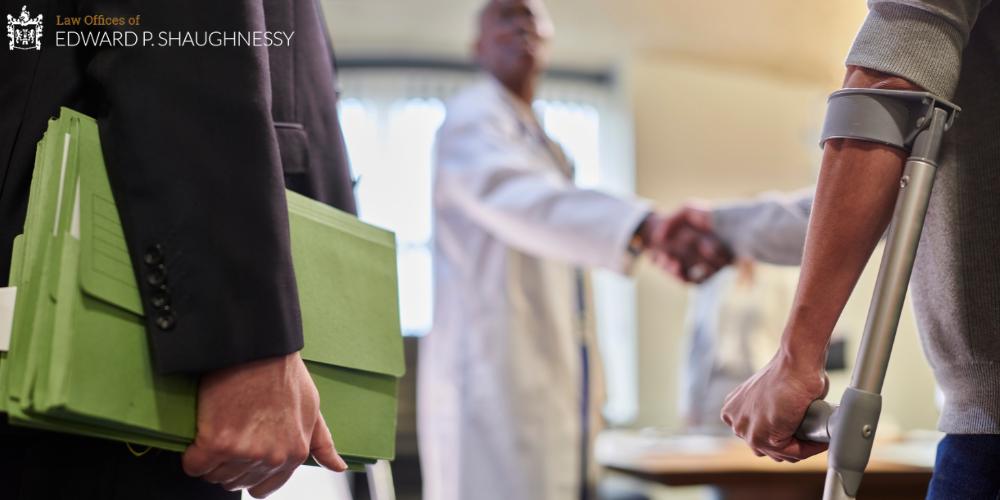
If you or a loved one has been injured in a slip and fall accident in Easton, Pennsylvania, you don’t have to navigate the legal process alone. The Law Offices of Edward P. Shaughnessy is dedicated to helping individuals like you seek justice and recover compensation for their injuries.
Our experienced Easton slip and fall lawyers are ready to provide you with the legal guidance and support you need. Contact us today at 610-258-9955 for a free consultation to discuss your case and explore your options for pursuing justice.
Contact Us Today For a Free Consultation!





